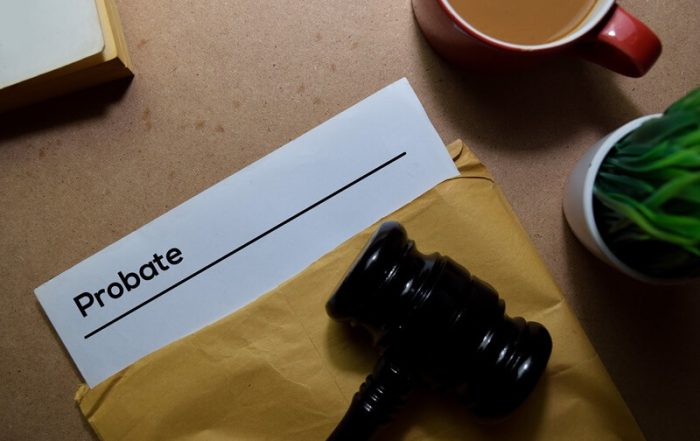What Does The Los Angeles Trust Litigation Process Entail?
What Does The Los Angeles Trust Litigation Process Entail?
Dealing with a trust dispute is rarely straightforward and demands careful management of legal issues. A trust litigation lawyer in California guides you through the nuances, helping you make informed decisions. With their support, managing the Los Angeles process and working towards a favorable resolution becomes manageable.
This guide provides a comprehensive overview of trust litigation, providing valuable insights and practical advice. It includes the common grounds for disputes and the steps involved in the process. Further, it highlights the importance of seeking an experienced legal counsel.

What Is Los Angeles Trust Litigation?
The process arises when individuals dispute how a trust is managed or distributed. The involved parties may challenge decisions or actions concerning the fiduciary arrangement. Legal action often resolves these conflicts and enforces compliance with the terms.
Litigation begins with filing a lawsuit and progresses through discovery, mediation, or arbitration. These steps resolve disagreements and implement the trust’s provisions, clarifying its terms and the responsibilities of those involved.
Several grounds, such as disputes over the trust’s validity or management issues, can trigger the process. These legal challenges are addressed through litigation to ensure the administration of the trust assets is according to the grantor’s intention.
What Are The Grounds For Trust Disputes?
Disputes often arise from undue influence, mental incapacity, or fraudulent activities. These issues can undermine the validity of the arrangement and its administration. They lead to allegations that the arrangement was improperly created or managed.
Undue Influence
Undue influence claims examine whether someone pressured the settlor to change the arrangement against their true wishes. You must show manipulation of the settlor’s decisions to prove undue influence. Evidence may include testimony and documentation showing coercion or manipulation.
Lack Of Mental Capacity
Claims of lack of mental capacity assess whether the settlor was mentally competent when creating or amending the arrangement. If the settlor lacked capacity, the court may declare the arrangement invalid. To demonstrate this, you must present medical records or testimony showing that the settlor could not make informed decisions.
Fraudulent Activities
Fraudulent activities involve proving that deceitful actions affect the creation or administration of the trust. It includes false representations or misappropriation of assets. To prove fraud, present clear evidence demonstrating how deceit influenced the management or validity of the arrangement.
Addressing Disputes
Resolving disputes involves determining if the arrangement reflects the settlor’s true intentions and complies with its terms. Legal proceedings settle disagreements and ensure the administration meets legal requirements.
To address disputes, examine the terms and the circumstances of its creation. Resolving these issues upholds validity and ensures proper administration. Trustees responsible for management may face lawsuits if they fail to fulfill their duties or mismanage the assets.
Why Do Trustees Face A Lawsuit?
Trustees can encounter legal action for failing to adhere to the terms or not acting in the beneficiaries’ best interests. They must manage assets properly and fulfill their fiduciary responsibilities. Here’s a closer look at why trustees can face a lawsuit.
Trustee Responsibilities
The fiduciary must manage assets, make decisions that align with the terms, and act in the beneficiaries’ best interests. Failure to fulfill these duties can result in legal action. They must ensure their actions support the arrangement’s purpose and comply with legal requirements.
Fiduciary Duty
Trustees must act with loyalty and care, avoiding conflicts of interest and managing assets responsibly. They must ensure transparency in their actions. Failing to meet this duty can result in legal consequences and compromise integrity.
Common Trustee Issues
Fiduciaries can mismanage funds, fail to follow the provisions, have conflicts of interest, or lack transparency. These issues can trigger disputes and lawsuits. Addressing them helps prevent escalation, ensures proper management, and preserves credibility.
Impact On Trust Litigation
Fiduciaries’ actions can significantly affect trust litigation. Allegations of duty breaches can escalate disputes. Their decisions can influence the outcome of the litigation and impact the overall resolution of the case. It emphasizes the need to fulfill their responsibilities diligently.
Trustees must uphold their duties throughout the whole process to avoid lawsuits. Litigation is complicated and involves multiple steps; the fiduciary needs a thorough understanding of each stage. This knowledge helps anticipate challenges and protect their rights throughout the entire procedure.
What Steps Are Involved In Los Angeles Trust Litigation?
Each stage in trust litigation addresses specific issues and resolves disputes. Familiarity with these steps ensures effective case management and a clear path to resolution. Here is an overview of the critical stages in the process.
Filing A Lawsuit
The process begins with filing a legal complaint to address the dispute. The plaintiff, who can be a beneficiary, trustee, or other interested party, files this complaint to initiate the litigation. This action establishes the framework for further legal proceedings.
Service Of Process
Service of the process involves formally notifying all relevant parties about the lawsuit. This step informs each party of the legal proceedings and their obligations. Proper service provides an opportunity to respond to the claims and participate in the litigation.
Discovery Phase
In the discovery phase, parties collect evidence and information relevant to the case. It includes documents, witness testimonies, and other materials that support their arguments. Discovery enables both sides to build their cases and review the evidence presented at trial.
Pre-Trial Motions & Hearings
Pre-trial motions and hearings address legal issues before it starts. These proceedings clarify and resolve preliminary matters affecting the case. They may include motions to dismiss or other legal arguments to shape the parameters.
Negotiation & Mediation
In negotiation and mediation, parties work with a mediator to resolve the dispute. Mediation provides an opportunity to reach a settlement more efficiently and avoid a prolonged court battle. These processes help streamline the resolution.
Trial
In a trial, a judge or jury examines the evidence and renders a final decision. It determines the outcome based on the facts and legal arguments presented. Further, it concludes with a ruling that resolves the dispute and enforces the terms of the trust.
These steps address and resolve trust disputes systematically. It ensures that each party can present their case and achieve a resolution. This structured approach helps in resolving disputes more effectively.
How Can Disputes Be Resolved?
Dispute resolution in trust litigation can be done through several methods, each offering distinct advantages depending on the conflict and the parties involved. Consulting with a trust litigation lawyer in California can provide valuable guidance in selecting the optimal resolution strategy.
Mediation
This step occurs after filing a lawsuit but before trial. A neutral mediator facilitates discussions to help the parties settle. They provide a structured environment for negotiation and promote open communication. Successful mediation often results in agreements that satisfy both parties, reducing the likelihood of prolonged legal battles.
Arbitration
During this process, the arbitrator reviews the evidence, hears arguments from both sides and delivers a verdict that resolves the dispute. Like mediation, it typically follows the filing of a lawsuit. This method provides a faster, less formal resolution and avoids the need for a trial.
Settlement Negotiations
Settlement negotiations involve parties directly discussing and exchanging offers to resolve the dispute. This process can happen at any stage of litigation, including after filing a lawsuit. Both sides aim to reach an agreement that avoids formal legal proceedings. Successful negotiations result in a settlement that resolves the dispute without a trial.
Court Litigation
Court litigation begins with filing a lawsuit and proceeds through discovery, where parties exchange evidence. If mediation or arbitration does not resolve the case, it moves to trial. Here, a judge or jury renders a final decision.
Resolution methods offer opportunities to settle disputes efficiently and avoid the need for a lengthy court trial. Choosing the appropriate method depends on the specific circumstances of the case and the desired outcomes for the parties involved. An experienced Los Angeles trust litigation attorney can guide this choice.
How Can The Los Angeles Probate Attorneys Help?

Trust litigation is a complicated legal process requiring a thorough understanding of the law. Our firm handles these intricate cases and guides clients through each stage of the procedure. We bring extensive experience in resolving disputes related to trust.
We help clients determine the right approach, including settlement negotiations, mediation, arbitration, or trial. Our experienced attorneys provide strategic guidance and advocacy throughout each stage. Further, we ensure clients make informed decisions and achieve favorable outcomes.
Choosing our firm, Los Angeles Probate Attorneys, means partnering with a team that understands the complexities of trust litigation. We strive to resolve disputes efficiently while safeguarding the rights and interests of the parties involved. Contact us today and approach the legal process with confidence.
Summary
Los Angeles trust litigation arises when there are disputes over the management or distribution of trust assets. Legal action is often necessary to protect beneficiaries’ interests and ensure compliance with the terms. The grounds for disputes include undue influence, mental incapacity, and fraud.
Understanding these aspects helps navigate the intricacies of the process effectively and ensures that the trust is administered as intended. At Los Angeles Probate Attorneys, we guide clients through each phase of litigation, resolve disputes efficiently, and protect their rights.








